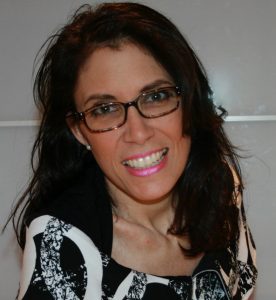By Marie Potter
If you’re overwhelmed by a pile of bills, mounting debt, and competing priorities, know that it’s possible to cut through the financial clutter. Get your financial house in order by organizing your finances, and overall financial wellness will follow suit.
How? Begin by recognizing the benefits of getting your finances on track. Taking care of your money now is a first step in the journey toward leading a more balanced, fulfilled and meaningful life.
Your heart will beat slower, you’ll catch more z’s, you’ll be more productive at work and even more likely to make healthy choices.
How do you get to be financially organized? 5 sure-fire tips.
Shift your perspective
Ask yourself, “have I ever complained about the costs of living today or how big my credit card bill is getting?” Remember, for every dollar you spend, you are getting something in return.
To feel financially well, focus on the receiving and never spend more than you make.
Determine your destination
Take time to map out your financial journey. It’s a goal-setting exercise that will save you time and give you clarity. Determining your goals is one of the most critical steps to financial wellness.
Everyone has different financial priorities and obligations, whether saving for the ultimate wellness retreat or paying off a big debt. Figure them out and write them down. Harvard studies have proven goals are ten times more likely to happen when written down.
Manage your information
On average, people who have their financial house in order locate any document or digital file in less than 20 seconds. At the core of organization is systematization. It starts with your mailbox or your inbox. In either case, you need a logical way to deal with the financial flow.
Paper records
f you are dealing with paper records, set up a vertical desktop filer in your office or near the front door to receive financial documents. Set a regular processing time to manage paperwork (i.e. weekly or monthly) and stick to it.
You will need a filing system to store documents. The system should include a filing cabinet using legal-size hanging folders and alphabetical tabs. Freedom Filer is a great off-the-shelf system with ready-made colour-coded file and tabs.
If you set up your own system, use folder names that make sense to you. You’ll also need an archiving system for saving financial documents like taxes or certain investments. After you have reviewed and processed your financial documents, be sure to file them.
Digital records
If you decide to take the paperless route, begin by arranging to have all your bills and statements arrive in your inbox. Next, arrange with your financial institution to have all your bills debited from your account or your credit card. Even better, set up automatic credit card payment so you’ll never have to pay interest again!
When your bills arrive, check your account to ensure you have sufficient funds for your upcoming automatic payments. Save time running to the bank and use your mobile phone to deposit cheques (note there will be a temporary hold on the cheque).
If you prefer to have both digital and paper records, this would be a good time to ensure the two systems mirror each other.
Buy happiness
Stressed out? It’s no surprise working adults have more money and less time. They say money doesn’t buy happiness but can definitely buy time. Researchers surveyed over 6,000 adults in the United States, Denmark, Canada and the Netherlands and discovered that spending money on time-saving services is linked to greater life satisfaction.
Ironically, few people seem to be heeding the advice despite having the cash flow. The evidence is there, so go ahead and pay for a cleaner, professional organizer, gardener, bookkeeper, grocery deliverer, or prepared healthy meals and shift your time to doing something you truly enjoy.
Concentrate on creating
Are you a spender? If you find yourself setting out on a shopping spree to feel good, escape “reality,” or fill a void, start by noticing your trigger. Then consider turning your consuming drive into a creating drive. It might be planning a trip, playing the guitar, baking a pie, planning a garden – whatever brings about your inner smile.
For some, managing money and financial matters comes naturally. For others, it’s hard to know where to start. But there’s hope. Consulting with a professional organizer and/or financial advisor is a great way to ensure you’re on the right path. These pros can provide the help and tools you need to succeed in your mission to organize your finances and your life.

Marie Potter is the marketing director for Professional Organizers in Canada, trained professional organizer, POC Silver and Gold Leaf member, recent recipient of the POC Presidents Award and mother of 9-year-old adopted twin girls.
Professional Organizers in Canada is a national registered non-profit association of over 500 Professional Organizers and 14+ chapters who help individuals and businesses by organizing their space, time and information. They create functional spaces, increase productivity and reduce stress. POC provides a supportive environment for all types of organizers to learn, exchange ideas and network.


